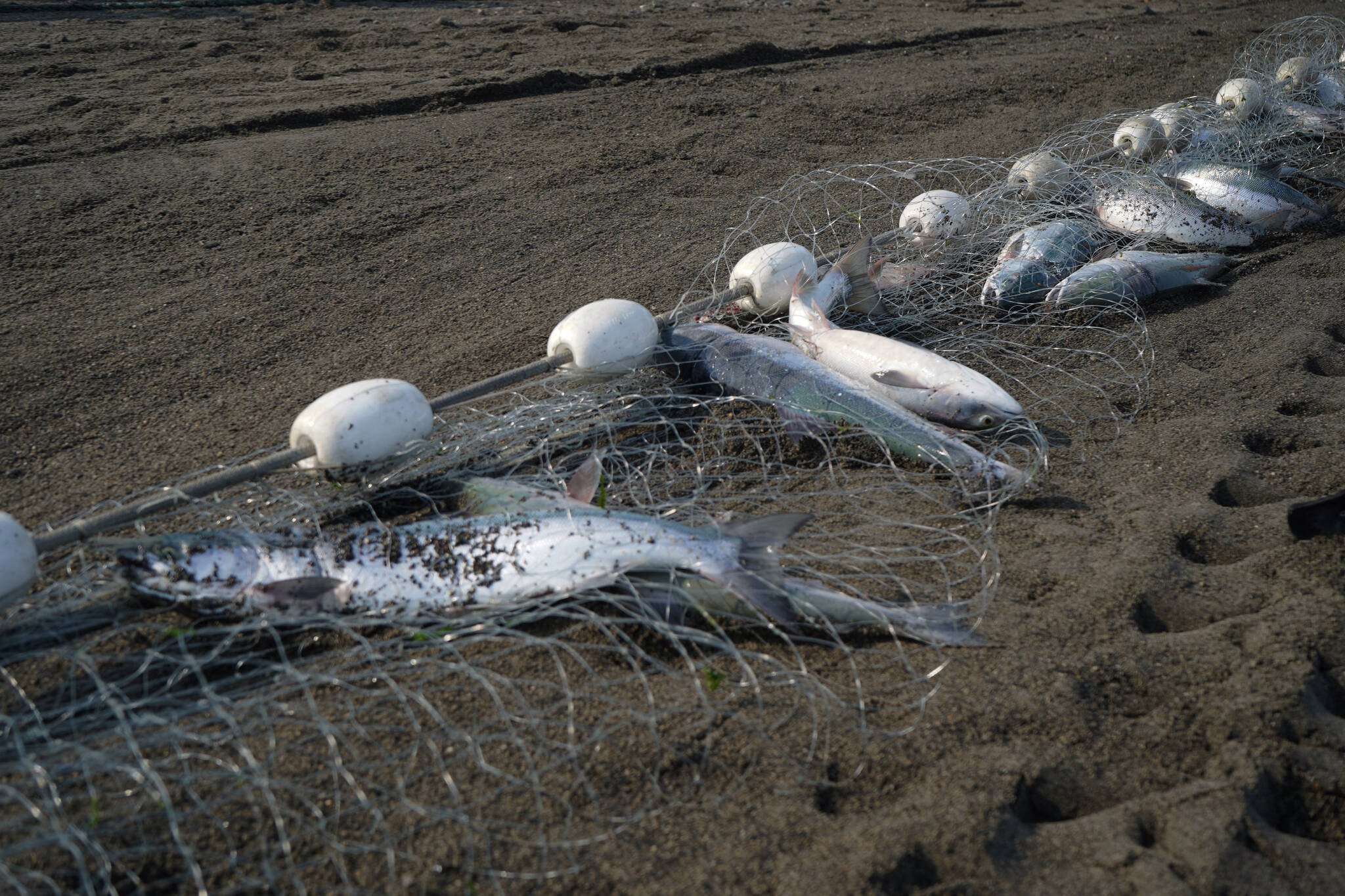The Kenai Peninsula Borough Assembly is calling on Gov. Mike Dunleavy to designate the area of the Upper Cook Inlet East Side Setnet Fishery as one affected by an economic disaster this year.
The resolution, sponsored by Assembly President Brent Johnson, Kenai Peninsula Borough Mayor Peter Micciche and Assembly Vice President Tyson Cox, is in response to this year’s unprecedented closure of the fishery by the Alaska Department of Fish and Game in March. In all, the department handed down 11 emergency orders that also closed the Kenai River and Cook Inlet to sport fishing for chinook salmon.
“The cultural and social loss is both emotional and painful,” Johnson wrote in an Oct. 20 memo to assembly members. “The economic loss is great and it is to this loss that the east side setnet fishery seeks government help.”
The resolution estimates that the 435 permit holders part of the east side setnet fishery may have each lost more than $17,000 per permit through the complete closure of the fishery this year.
Alaska Statute says that an economic disaster occurs when the annual income for workers in a designated area drops below the average annual income for the base period. For a fisheries failure, the resolution says, the base period is the years during which a fishery produced “at economically representative levels,” as determined by ADF&G.
A disaster declaration from Dunleavy, the resolution says, would allow the Alaska Legislature to appropriate funds for grants and help accelerate economic recovery efforts for fishers.
Ken Coleman, vice president of the Kenai Peninsula Fisherman’s Association, said last Tuesday’s request for a disaster would be the fifth such request in the last six years, and that such assembly action is “very meaningful.”
“We have pending now five or four other disasters,” Coleman told assembly members Tuesday. “We may see resolution to the first two by next spring … They’re just a bit of money that people can use to help with their expenses, their taxes and, for many people, their day-to-day living expenses.”
The Oct. 24 resolution came amid ongoing efforts by Cook Inlet’s east side setnetters to reopen the fishery.
The Alaska Department of Fish and Game this summer tested selective setnet harvest gear in Cook Inlet as a way to see whether shortening the length of nets would allow more chinook salmon to return to rivers while also allowing setnetters to fish for sockeye. That test ran from July 8 to Aug. 7 on a fish site owned by commercial setnetter Gary Hollier, off of Kalifornsky Beach Road.
Preliminary results from that test, released earlier this month, showed that about 9,500 salmon were caught by Hollier’s nets. Of those, 50 — about one half of one percent — were chinook salmon. Twenty of the 50 chinooks caught were successfully released and only six were large kings.
Commercial fishers adversely affected by the department’s chinook conservation policies have previously been directed to take up their grievances with the State Board of Fisheries, which considers Cook Inlet proposals every three years.
This year, local groups lobbied board members to hold their upcoming Cook Inlet finfish meeting on the Kenai Peninsula, rather than in Anchorage. The board during an Oct. 13 meeting opted to remain in Anchorage, citing scheduling conflicts with the Soldotna Regional Sports Complex.
Micciche said last week he would be “reaching out personally” to Alaska Department of Commerce, Community and Economic Development Commissioner Julie Sande about that decision.
“Considering the fact that 80% of Cook Inlet Finfish meetings are on river systems that are right here in this district, we’ll certainly keep the pressure on together to get the Kenai Peninsula back in the rotation where it should have been — where it should have remained throughout (these) last 25 years,” Micciche said.
The assembly approved the resolution without discussion on Tuesday. Johnson was not allowed to vote on the resolution because he is a commercial setnet fisherman on Upper Cook Inlet’s east side.
The Oct. 24 assembly meeting can be streamed on the borough’s website at kpb.legistar.us.
Reach reporter Ashlyn O’Hara at ashlyn.ohara@peninsulaclarion.com.


